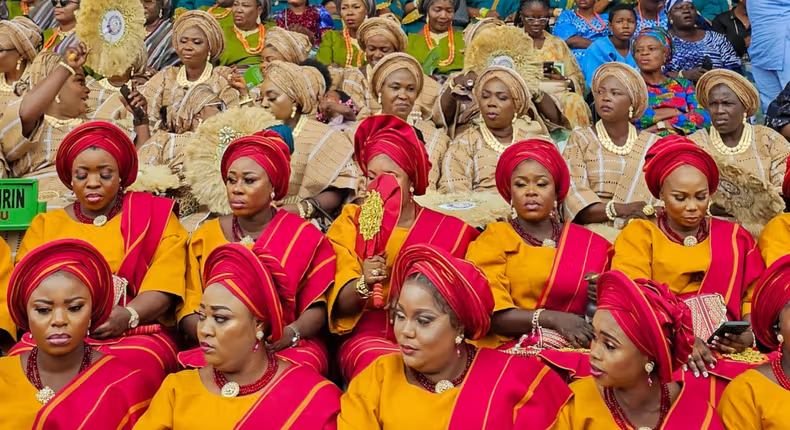The Ojude Oba festival is a vibrant cultural event among the Ijebu people of Nigeria, particularly celebrated to honor the Awujale of Ijebu Land. Here’s a deeper look into the significance of dressing and attire during this festive occasion:
1. **Cultural Significance of Dress**: Dressing up plays a pivotal role in promoting and preserving Yoruba culture. Participants, both male and female, invest considerable time and effort into selecting and preparing their outfits for the festival. Fabrics are carefully chosen, sometimes imported, and adorned with accessories to enhance their visual appeal.
2. **Public Display and Visual Appeal**: At the Ojude Oba festival, elaborate dressing becomes a public display of cultural pride and identity. Women from different age groups embellish themselves with expensive jewelry and makeup, aiming to showcase beauty and aesthetics. This emphasis on appearance underscores the cultural value placed on visual presentation and self-expression.
3. **Social Hierarchy and Dress Codes**: The attire worn by participants also reflects social hierarchy within the community. Men often wear traditional fabrics like etu and alaari, which signify prestige and cultural status. Women, on the other hand, favor modern embroidered lace and aso-oke, with the quality and expense of their attire symbolizing their social standing and cultural significance.
4. **Community and Belonging**: Dressing in uniform styles within age groups and families is common during the festival. This uniformity not only enhances the visual impact but also communicates social identity and a sense of belonging. Participants take pride in being part of well-dressed groups, which reinforces community bonds and cultural cohesion.
5. **Research and Observations**: Studies, such as the one conducted by Idowu Jamiu Diayolu, highlight the meticulous planning and deliberation involved in selecting festival attire. Participants and observers alike recognize the role of dress not only in celebrating traditions but also in shaping perceptions of cultural heritage and modern trends.
In essence, the Ojude Oba festival is not just a celebration of the monarch but also a vibrant display of Yoruba cultural heritage through the artistry and significance of traditional attire. Dressing up becomes a form of cultural expression and social identity, reflecting both individual creativity and collective pride in community traditions.
